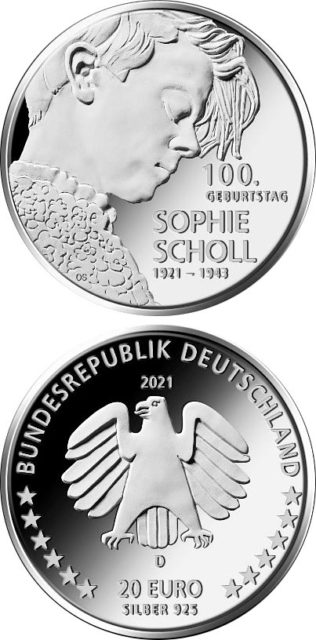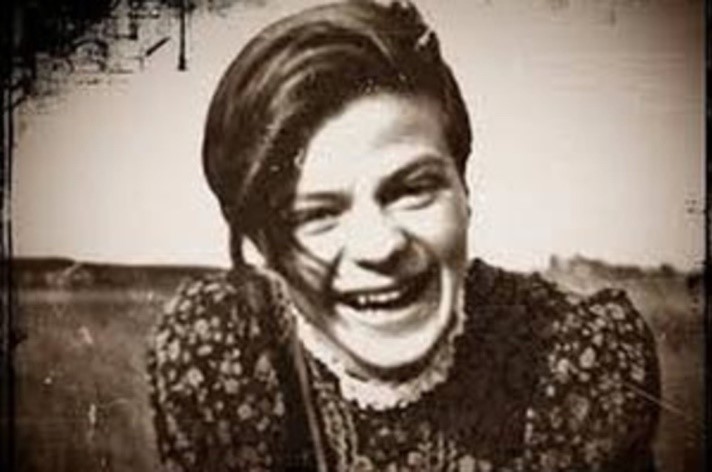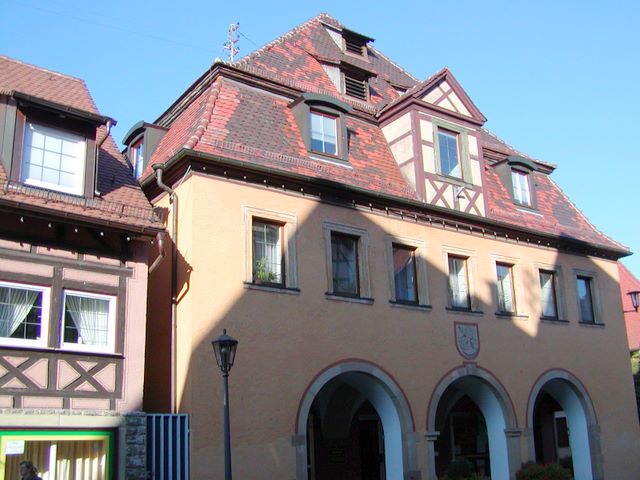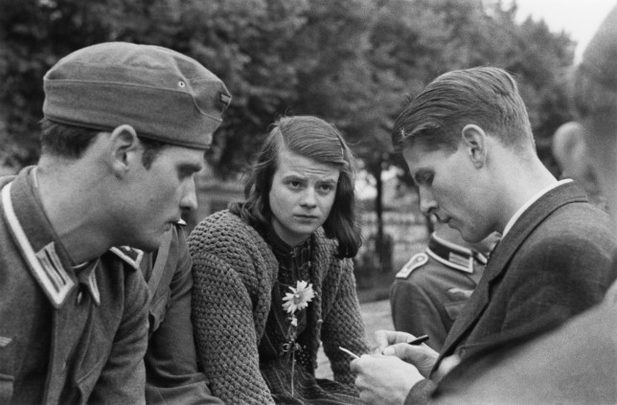Sophie Scholl was an anti-Nazi activist and a student when she was executed by guillotine on the 22nd February 1943, aged just 21, after being convicted of treason by the German authorities. Next year the German government is to issue a unique coin to commemorate her 100th birthday.
The German Finance Ministry said in a statement that a silver collectors coin with a face value of €20 ($23), will be issued in April 2021, to commemorate the 100th anniversary of Scholl’s birth.

Sophia Scholl, one of six siblings, was born on the 9th May 1921 to Robert and Magdalena Scholl. Both her parents were passionate critics of the Nazi regime. She had a happy childhood.
In 1932, while attending secondary school, she joined the League of German Girls alongside nearly all her classmates. Her enthusiasm for the league soon palled, and she became extremely critical of the Nazi regime.
She was strongly influenced by her brother and his friends’ arrest for being involved with the German Youth Movement, another anti-Nazi group.

Sophie Scholl entered the world of work as a kindergarten teacher, teaching in Ulm at the Fröbel Institute. She wanted to attend university but was reluctant to undertake the auxiliary war service, which was compulsory for anyone wishing to attend university.
She hoped that her teaching would be regarded as a service, but this was not to be. She moved on to complete six months of auxiliary war service in Blumberg, working as a nursery teacher.

In May 1942, she entered the University of Munich, where she became aware of the White Rose group. Her brother Hans was one of the founding members. This group was passionate about their anti-Nazi views and aimed to overthrow the Nazi party.
They wrote a series of leaflets quoting biblical and philosophical arguments to encourage the German public to peacefully resist the Nazi regime.
They distributed leaflets, and in February 1943, Sophie and her brother were arrested for distributing the sixth leaflet published. The Scholl siblings had brought a suitcase full of printed leaflets to the university for the members to distribute.
Piles of leaflets were left outside lecture halls, but at the end, there were a few leaflets left, and Sophie opened a window and threw them out to float to the ground in the atrium. Unfortunately, she was seen by the university maintenance man and reported to the Gestapo. Sophie and her brother were arrested.
On the 21st February 1943, Sophie was sentenced in the People Court by Judge Roland Freisler. She was found guilty of treason and sentenced to death. As she went bravely to the guillotine, she is reported to have said, “Such a fine, sunny day, and I have to go… What does my death matter, if through us, thousands of people are awakened and stirred to action?”
Following her death, a copy of the sixth leaflet was smuggled out of Germany and reprinted in the UK. In mid-1943, millions of copies of the pamphlet were dropped all over Germany. The flyer had been re-titled as The Manifesto of the Students of Munich.
Germany’s Finance Ministry said her resistance was an example of the fight against oppression and the lack of freedom.
Sophie’s coin has been designed by Olaf Stoy, an artist living in Saxony, and her quote, “A feeling for what is just and unjust“, will be minted onto the side of the coin.
Germany has honored other members of the White Rose Group. At the end of 2019, the Hochbrück army complex was renamed after Christoph Probst, another member of the group.
Another Article From Us: Graffiti Denying the Holocaust Spray-Painted on Oradour-sur-Glane Memorial
While in 2012, Hans Scholl, Sophie’s brother, was honored by having the main lecture hall at the Bundeswehr’s medical academy in Munich named after him.
